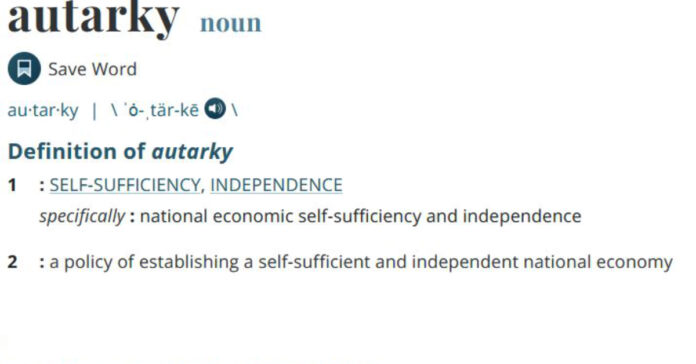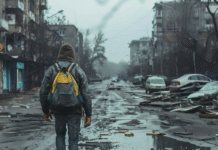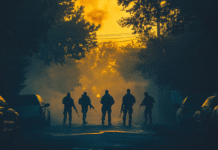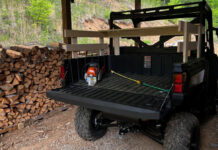I learned a new word today while reading an article on 19fortyfive.com. The word is autarkic. It is derived from autarky, which means national self-sufficiency and independence. The Mirriam-Webster.com definition is in the image above.
While this word usually applies to nations and is frequently used relating to the production of weapons and other items of national security, I don’t see why we as prepper cannot adopt it. If you think of each prepper group after the fall as a tiny nation-state, then we want to be as autarkic as possible.
The Re-Emergence of Social Order
Let’s imagine that whatever disaster has struck, the die-off is over, and some small percentage of the population survived. Government reports on EMP predict 10 percent survive, but I expect the number will vary depending on the disaster, whether it happened slowly or quickly, and how broadly it hit. It could be far lower, especially after several years.
To survive, it’s highly likely that those survivors will have established some form of small units, possibly several families, or a neighborhood, or other geographic region, and are working together to support each other. In my mountainous region, each hollow, or holler, in which we live, might become a unit. Hollers might trade with each other, might band together to fight an invader, could socialize and intermarry over time, or might be at odds with each other. I know there were feuds here less than 200 years ago.
In another area, it might be the people on the left side of a river band together while the survivors on the right side support each other. The amount of commerce or conversation across the river might depend on how big an obstacle the river is and how far it is to the nearest bridge. While there are plenty of rivers one can wade across, there are rivers where the other side might as well be on the moon if you have no boat.
Each unit, or community, might have different rules or a different structure. One might be ruled by a strong man. Another might elect leaders by consent. No matter what happens, there will be multiple forms of self-governing organizations formed. Each of them will want to be as autarkic as possible.
Learning from the Middle Ages
Let’s look at the average village or small town in the middle ages. The following are generalizations:
- It was surrounded by farmers who, in most years, raised sufficient food to feed the village and fiber to cloth them.
- The village had a lord who provided guardsmen to keep it safe. They might also patrol the local roads to keep highway men to a minimum.
- Depending on the location and the year, it may have had a wall.
- It had shared water sources, such as wells.
- It might have a miller who would grind grain.
- There was a blacksmith and possibly a tinsmith, goldsmith or other metal workers to make and repair horseshoes, tool, weapons, chains, and other metal goods.
- A small village might have a market where people would meet on specific days to sell or trade goods. A larger town might have merchants.
- Traveling merchants might come through town to buy and sell their wares.
- There might be a public house, a brewer and a distiller.
- Those who live in the village still have a garden, chickens and some small livestock for personal use.
- The lord would draw his guardsmen from the sons of the area farmers, but all the able-bodied men might be have to act as militia members if an enemy attacked the village.
These villages were self-sufficient, but they might depend on merchants for raw metals, spices, salt, tea, special fabrics such as silk, etc. If war prevented any merchants from showing up, they would be missed, but it would not be a disaster. The village could live without outside support. That’s the goal for a post-SHTF society. Never should we become so dependent on other far away, whether that is across the country or across the ocean.
Something to Aim For
If the U.S. is bombed back into the dark ages, as opposed to backsliding just to the 1880s, then the above information might be a useful guide for survivors. We know cooperation and community will be needed, and the “village” set up provides one example that might be achievable. A system with cooperative food raising, cooperative defense, and cooperative child rearing (allowing able-bodied parents to work while those less able provide childcare) would be far superior to a single family or small group trying to survive on its own.
I expect it will take some time for people to trust strangers. Having a village at your back might make that more likely. Strangers could be trouble, but they could also be access to news and to resources. Strangers might know of other villages with whom you could establish trade.
In the meantime, get to know a few of your neighbors. Be helpful, courteous, and build relationships. You want to be considered reliable and trustworthy when the SHTF.







